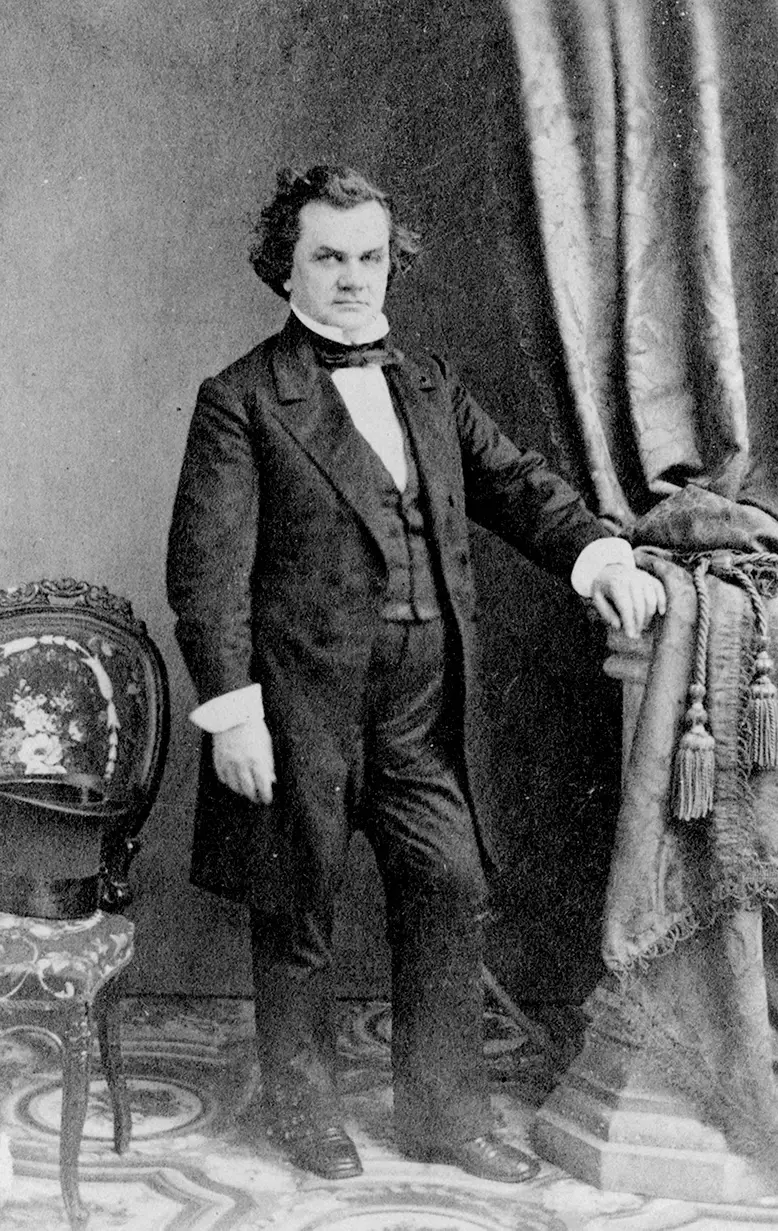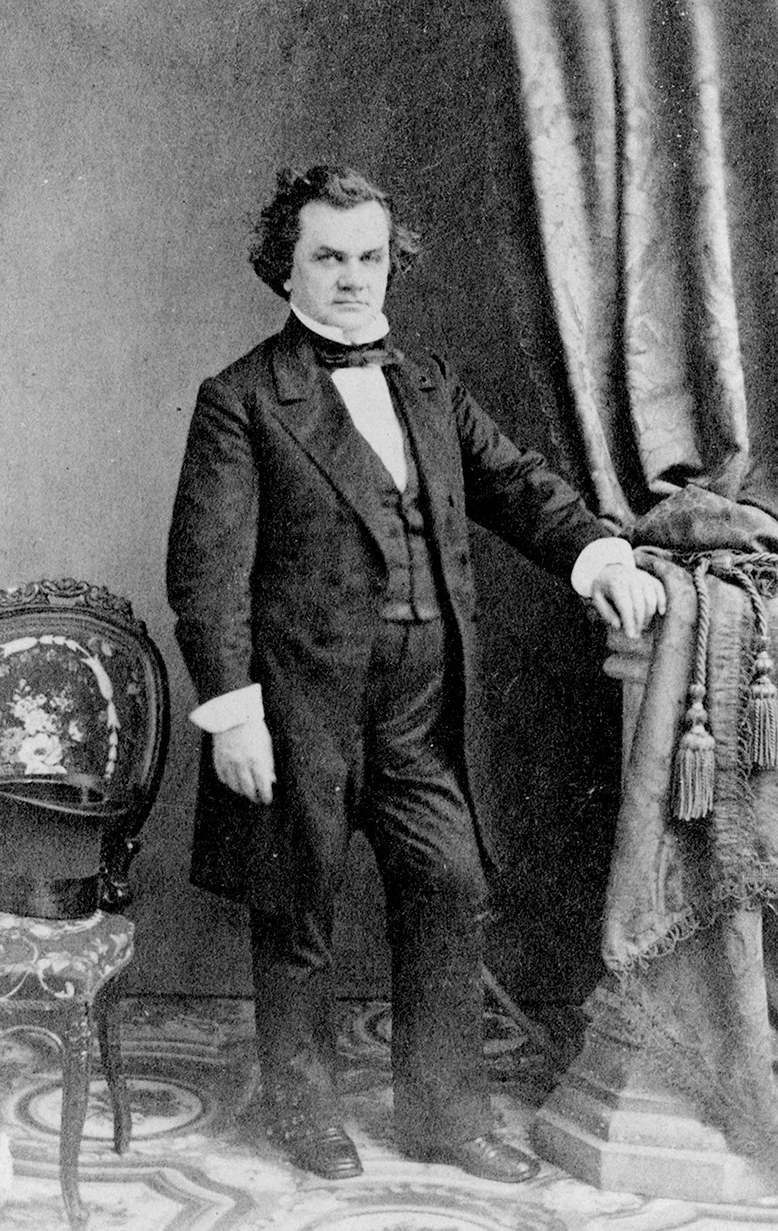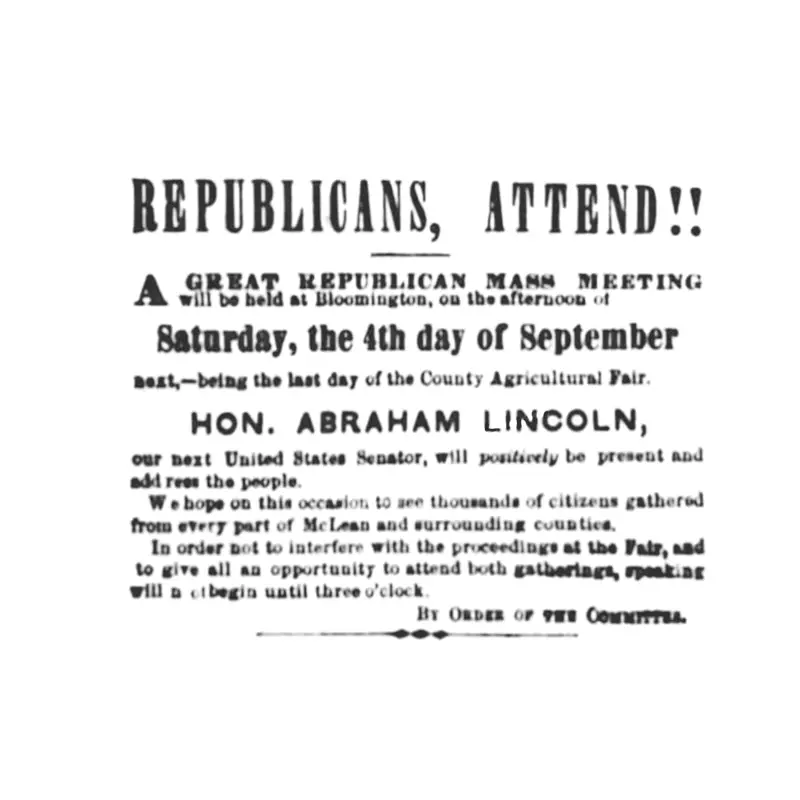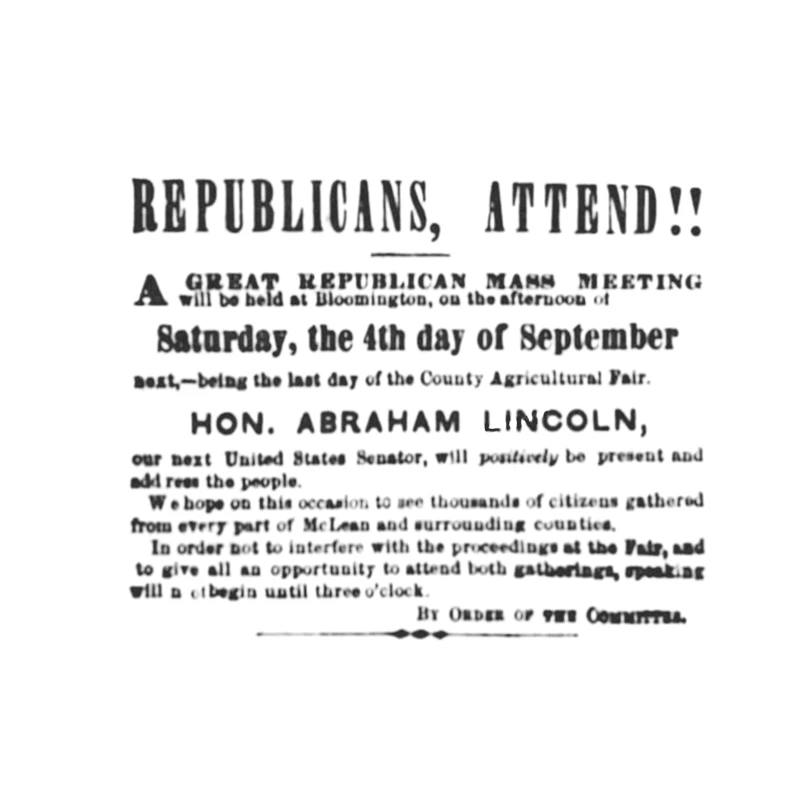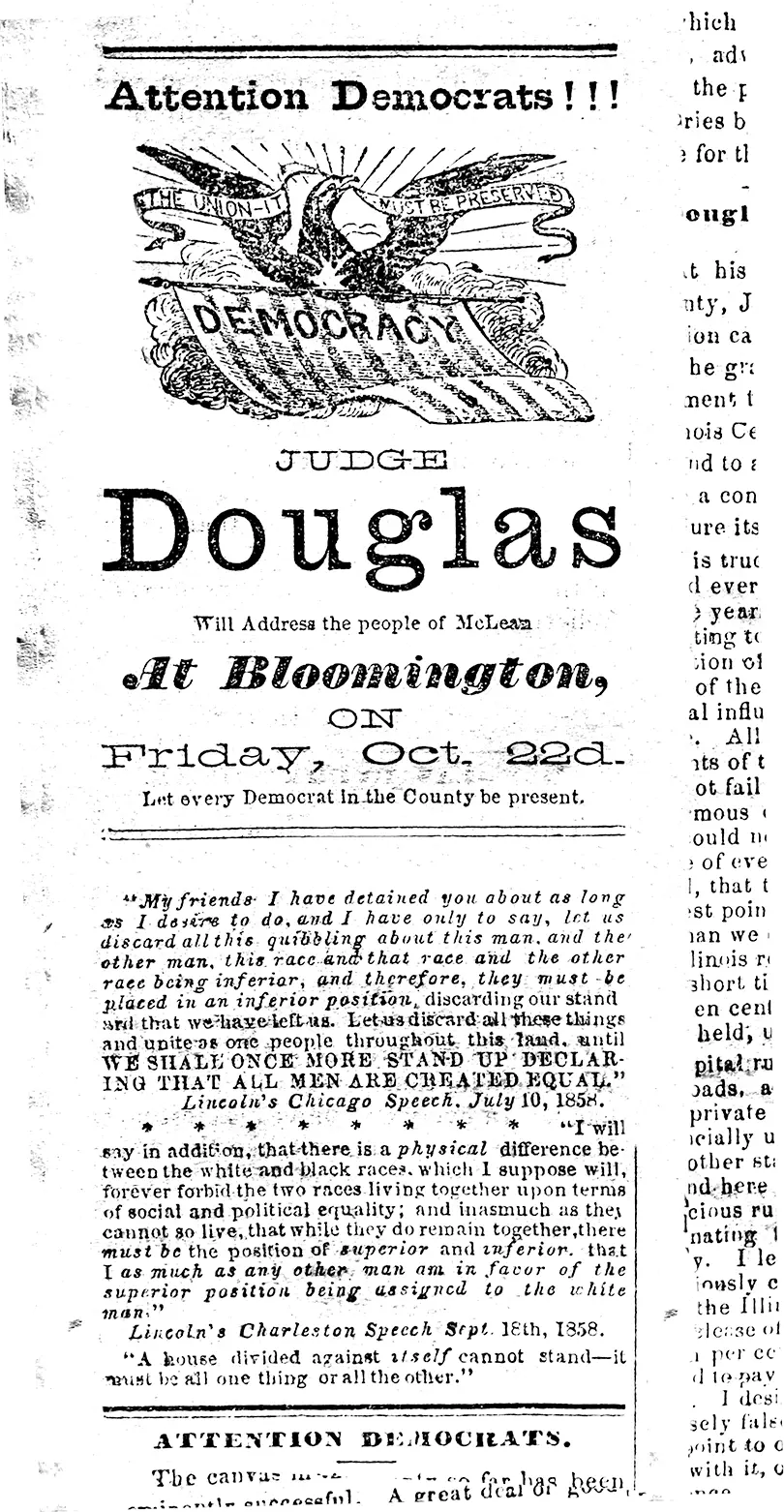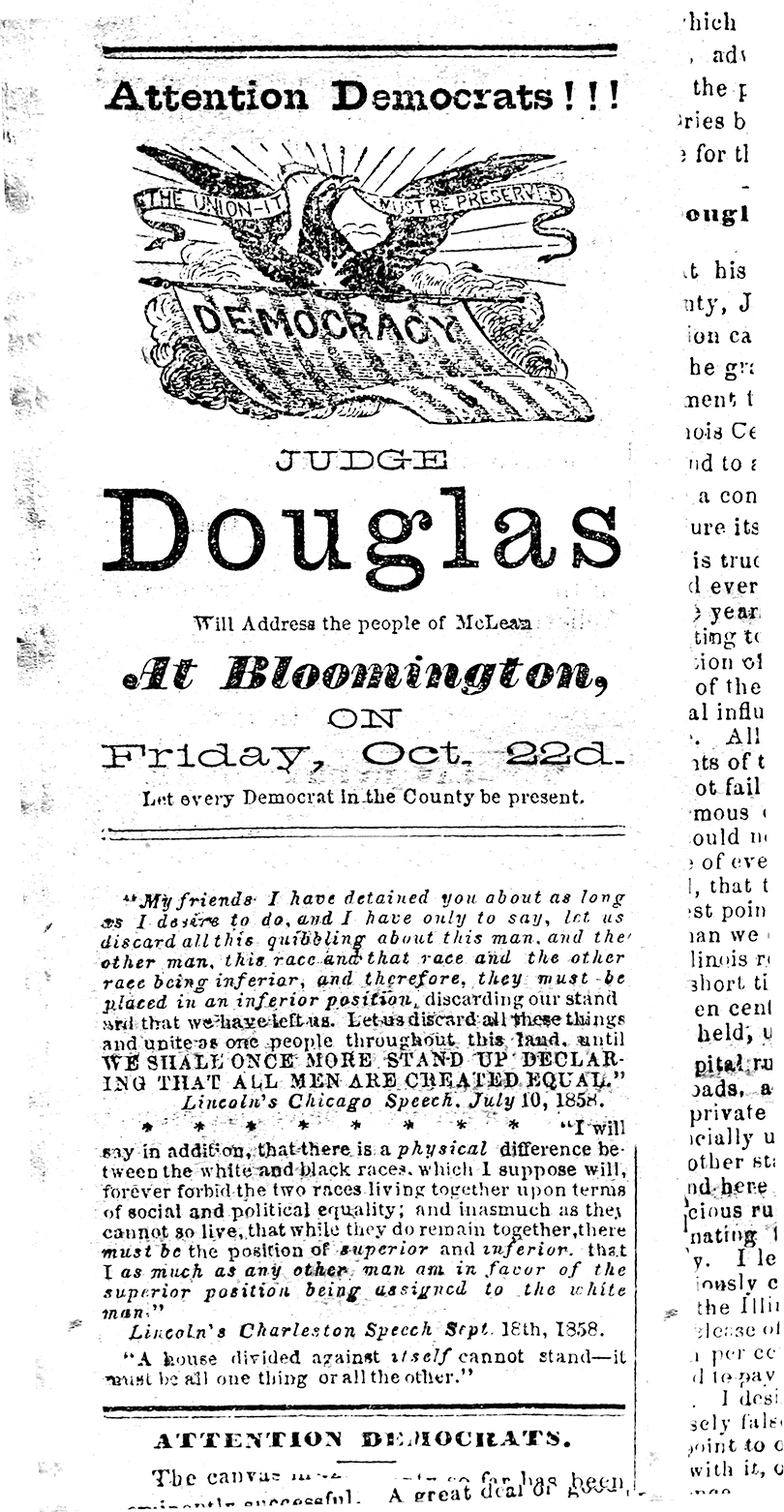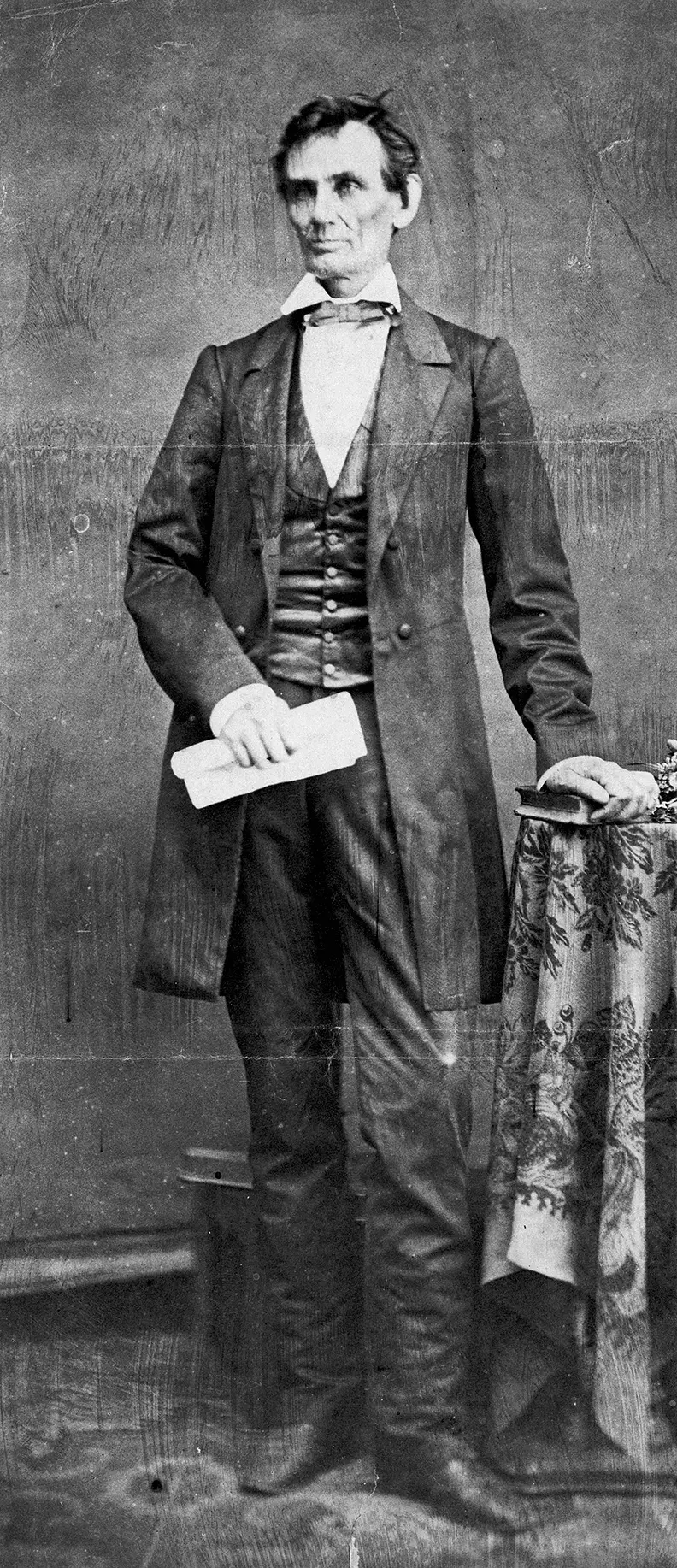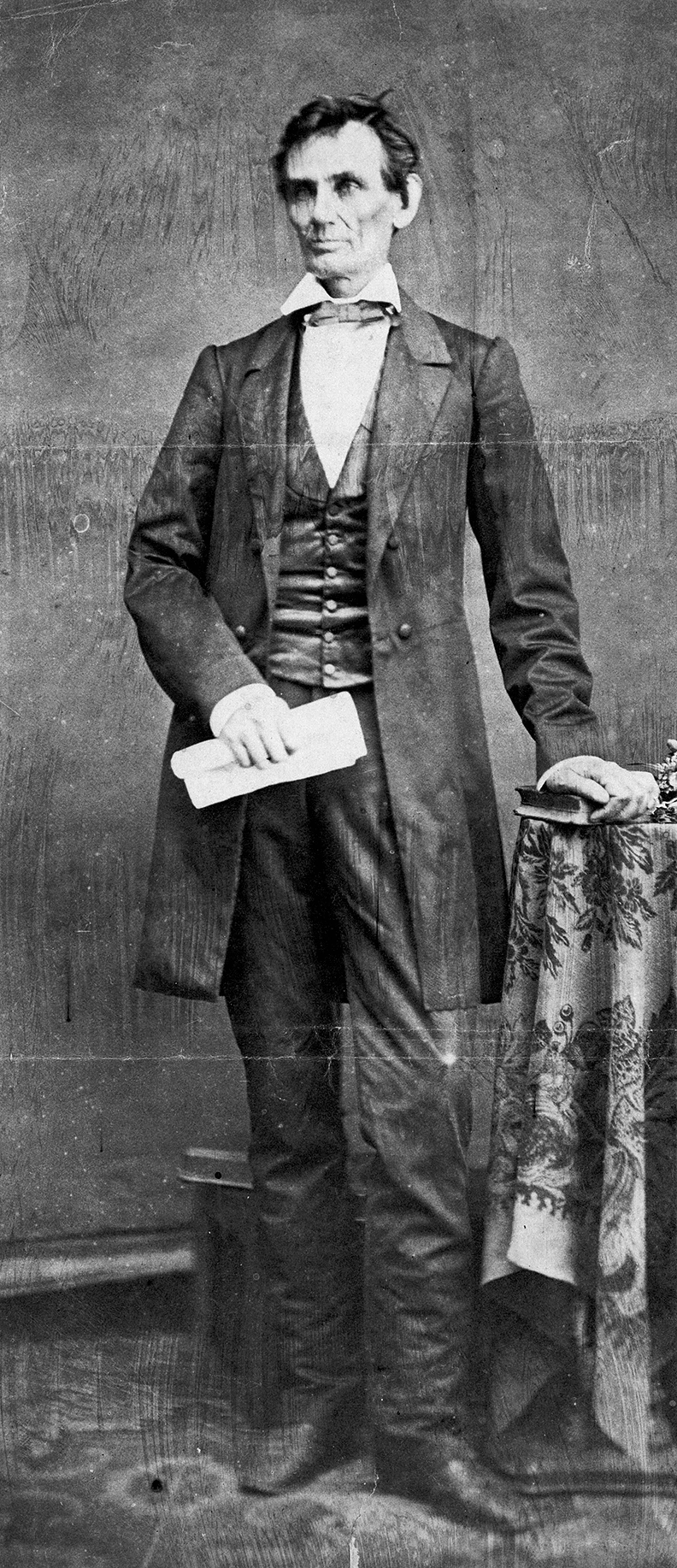Stephen Douglas
Bloomington was not a formal Lincoln-Douglas Debate site, but both candidates spoke here during the campaign.
On July 16 Douglas delivered a defense of popular sovereignty and the U.S. Supreme Court’s Dred Scott decision.
He declared that African Americans were not entitled to full citizenship and its constitutional protections.
Douglas’ racism drew the ire of abolitionist newspapers.
“It is sad to hear a man of position and of party influence talking thus. It might be tolerated in a besotted editor or an ignorant pot-house [tavern] politician; but in one claiming to be a great Leader of the Nation, it is alike degrading and criminal.”
— Boston Liberator
August 27, 1858
“I do not believe that the signers of the Declaration of Independence had any reference to negroes when they used the expression that all men were created equal... They were speaking only of the white race, and never dreamed that their language would be construed to include the negro.”
— Stephen Douglas
Political Debates Between Abraham Lincoln And Stephen A. Douglas, Burrows Bros., Co., Cleveland, Ohio, 1897
“He [Lincoln] thinks that the Almighty made the negro his equal and his brother. For my part, I do not consider the negro any kin to me, nor to any other white man.”
— Stephen Douglas
Political Debates Between Abraham Lincoln And Stephen A. Douglas, Burrows Bros., Co., Cleveland, Ohio, 1897
